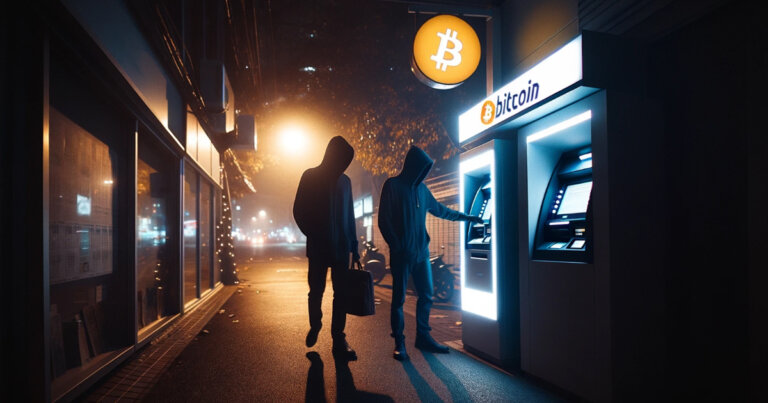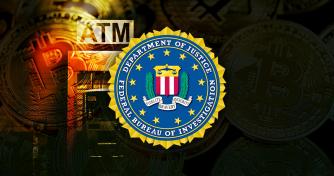 California to limit Bitcoin ATM transactions to $1,000 per day to combat fraud
California to limit Bitcoin ATM transactions to $1,000 per day to combat fraud California to limit Bitcoin ATM transactions to $1,000 per day to combat fraud
New California laws aim to crack down on scammers exploiting bitcoin ATMs.

AI GENERATED IMAGE VIA DALL-E 3
California is taking steps to crack down on scams exploiting Bitcoin ATMs to defraud victims out of thousands of dollars.
Starting in January, cryptocurrency ATM transactions will be limited to $1,000 per person per day in California under a new law signed by Gov. Gavin Newsom, according to a report in the Los Angeles Times.
The new law specifically states,
“An operator shall not accept or dispense more than one thousand dollars ($1,000) in a day from or to a customer via a digital financial asset transaction kiosk.”
The move comes as California prepares to implement a broader regulatory framework for cryptocurrency companies by 2025 under the Digital Financial Assets Law recently approved by Newsom.
That law will require crypto firms to obtain a state license and adhere to strict auditing and record-keeping requirements. The shift marks a change for Newsom, who vetoed a crypto regulation bill over concerns about adapting to the evolving landscape.
Meanwhile, the Bitcoin ATM limits are aimed at giving fraud victims more time to realize they are being scammed before transferring large sums of cash into cryptocurrency, which is difficult to trace—the Los Angeles Times cited the case of a San Jose man who was tricked into depositing $15,000 into a Bitcoin ATM.
While crypto industry advocates argue the law will hurt consumers, consumer groups say it is needed to combat increasing fraud linked to cryptocurrency ATMs. More than 46,000 people reported losing over $1 billion in crypto scams last year, according to the Federal Trade Commission.
More than 3,200 bitcoin ATMs are currently operating in California, according to the Los Angeles Times.
Legislation specifics.
The new law, Assembly Bill 39, defines a “digital financial asset transaction kiosk” as a device that accepts or dispenses cash in exchange for cryptocurrency.
Starting Jan. 1, 2025, operators of these machines will be prohibited from charging fees higher than $5 or 15% of the transaction, whichever is greater.
Operators will also be required to provide customers with disclosures on the terms and conditions of each transaction, including the crypto amount, dollar amount, fees charged, and the difference between the operator’s price and the price on a licensed crypto exchange.
Customers must receive a receipt detailing the transaction information, including the name of the licensed exchange used to calculate the price spread.
Operators will need to provide the California Department of Financial Protection and Innovation with a list of all kiosk locations and update the list within 30 days of any changes.
The law also stipulates that after July 1, 2025, operators must comply with California’s digital asset business licensing requirements or ensure any third parties using their kiosks have obtained a state crypto license.
The measures aim to increase oversight and transparency around cryptocurrency ATM transactions in California. The legislation goes into effect only if the broader crypto regulatory bill AB 39 is enacted by Jan. 1, 2024.


































































